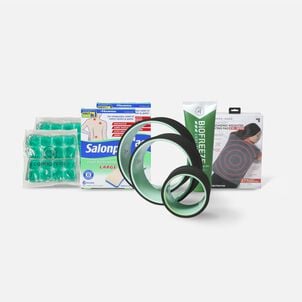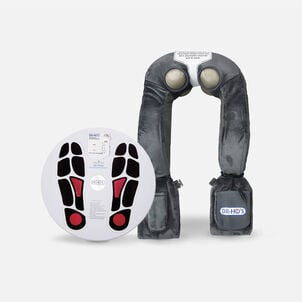The Complete FSA Eligibility List
Here it is — the most-comprehensive eligibility list available on the web. From A to Z, items and services deemed eligible for tax-free spending with your Flexible Spending Account (FSA), Health Savings Account (HSA), Health Reimbursement Arrangement (HRA) and more will be here, complete with details and requirements. Important Reminder: FSAs, HRAs and other account types listed may not all be the same. Be sure to check with your administrator to confirm if something is eligible before making a purchase.
Here it is — the most-comprehensive eligibility list available on the web. From A to Z, items and services deemed eligible for tax-free spending with your Flexible Spending Account (FSA), Health Savings Account (HSA), Health Reimbursement Arrangement (HRA) and more will be here, complete with details and requirements. Important Reminder: FSAs, HRAs and other account types listed may not all be the same. Be sure to check with your administrator to confirm if something is eligible before making a purchase.
Anti-Parasitic: FSA Eligibility
Anti-Parasitic: requires a prescription to be eligible with a Flexible Spending Account (FSA)FSA Eligible Home Treatments
What is a parasite?
Parasites are small organisms that require a host to feed off of to survive, and it has to live inside the host to feed, multiply and grow over time. The word "parasite" comes from the Greek word "parasitos," with "para" meaning "alongside," and "sitos" meaning "food." Before the discovery of these organisms in the 18th century, the word actually referred to humans who lived at the expense of a relative or other person. This is effectively the same method of the common parasite, which uses the host to gain strength, and the host will be weakened as a result.
Parasites come in countless shapes and sizes, but scientists have developed a series of classifications to better explain how they function and attach to a host via Medical News Today:
- Protozoa: These parasites are single-celled organisms that multiply within the host and vary in terms of their strength and negative symptoms. Also known as endoparasites, these organisms can be contracted in numerous ways and their symptoms will vary in terms of their severity.
- Helminths: Also known as worm parasites. These invasive parasites can lead to numerous health issues, and the most common types include roundworm, fluke, tapeworm and pinworms.
- Arthropods: Insects and even arachnids can be carriers for specific types of parasites, and they can be transferred to humans with direct contact, ingestion or through the bloodstream.
How do anti-parasitic medications work?
Treatment to remove parasites is inherently difficult, as medications and procedures must be able to eliminate the parasite without causing significant damage to the host. However, as medical treatments developed over the decades, medications have been developed that exploit the differences between the host and the parasite by attacking essential enzymes that parasites need to live and can eliminate them at any stage of their development.
Anti-parasitic treatments include oral, topical, and intravenous treatments, and their function varies greatly depending on the parasite being treated. For instance, hair lice treatments kill both the parasites that are present, as well as the eggs the insects may have laid after contraction. Anti-parasitic treatments are designed to deny parasites their food sources, inhibit their ability to reproduce and ultimately eliminate the organisms where they reside.
 |
| 





















